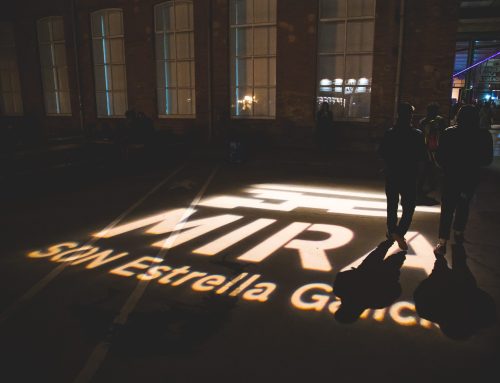The other day, as I was gathering my laundry off the line on our terrace, I saw the man next door. He was busy with what he has been doing for the last five years, directing labourers rehabbing the building he owns. Since he does not want to be called a speculator, he waits patiently for rental contracts to end. He pretends he is not performing the sinister act of mobbing to kick tenants out, but he does not renew anyone. When someone dies, he sends his crews into the vacated space with a vengeance, the screech of power tools a sort of manic penitence. This method has allowed him to fly under the radar: local housing activists leave him alone. He is different from another guy on the street, who cleaned out an entire building and redid it for quick resale at 40% over market price. When it was promptly squatted, he hired the services of Desocupa, a troupe of paramilitary thugs who protect developers from squatters and evict residents violently, ignoring judicial orders.
Unlike this guy, who people hate, the man next door to us walks down the street in peace. He is not on the list of the PAH or the Sindicat de Llogaters, the renters’ union. His face has yet to appear on posters with the slogan “This person is booting us out”, the latest campaign to appear.
The man next door, in any case, is not my neighbour, he lives somewhere else. Since he is the only human we ever see over there, it is easy to forget this. One day I pointed out that a cornice of his edifice facing ours was in a sorry state, and could he fix it please with a few swipes of extra cement his workers might have some day. This innocent request set him off on a tirade. He started to list everything wrong with my building, from an old asbestos downpipe to an incorrect Telefónica installation, which of course I cannot do much about. I had not realised I was going to touch such a sensitive nerve, asking him for the neighbourly thing to do.
Barcelona has 73 neighbourhoods, officially counted. The figure is arbitrary, since some demarcations contain more than one (like Congrés i els Indians, in Sant Andreu), while others are not really neighbourhoods at all (La Marina del Prat Vermell, an unpopulated new development in Zona Franca).
What is more, most Barcelonans live their neighbourhoods differently, ignoring the lines drawn by city hall. Our neighbourhoods consist of where we have coffee, where we shop, where friends live. The route we walk the dog along, or a nearby park. Someone living near Arc de Triomf, for example, might do daily rounds in five official neighbourhoods, all dovetailing into that part of the city.
The bureaucratic system of neighbourhoods was invented a few decades ago to improve public services. Known as the policy of proximity, attention is provided close to the residents who require them (schools, libraries, day centres for the elderly, medical clinics); it was probably one of the best municipal initiatives ever. It is not, however, what Barcelonans think about when they lament the loss of traditional commerce and the expulsion of residents, blaming tourism and the property operators that feed off it.
What bothers Barcelonans most of all is the decline of humble parcels of familiarity, often acquired over years. Neighbourly ways of doing things are reinforced by short conversations and modest exchanges, sometimes consisting of little more than trading newspapers with the same lady each morning over coffee: “when you’re finished with El Mundo Deportivo, yes, I’ll pass you El Periódico.” After a few months you have learnt she is a big Barça fan, she has a lousy pension, that she cannot stand the monarchy. Your relationship has become one of two people discovering they are neighbours. You did not choose this person, but you chose a relational mode.
There is no need to idealise this. Lately there is a lot of ill will in the air, and folks use community sentiments to sow the seeds of xenophobia. It is also true that large cities often do little more than envelop humans in their solitude, a phenomenon identified way back in The Lonely Crowd (1950). Globalisation and mobility mean good habits get lost; people turn a colder shoulder, enraptured in this digital reverie we all partake in. There is no obligation to be neighbourly either, so if you make the choice you should make the effort, sometimes despite everything.
There is no objective justification for saying “hola” every time you get into the elevator, and “bona nit” when you get off at your floor.








